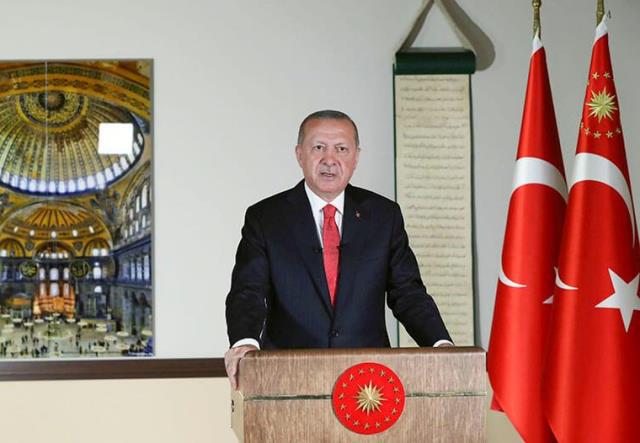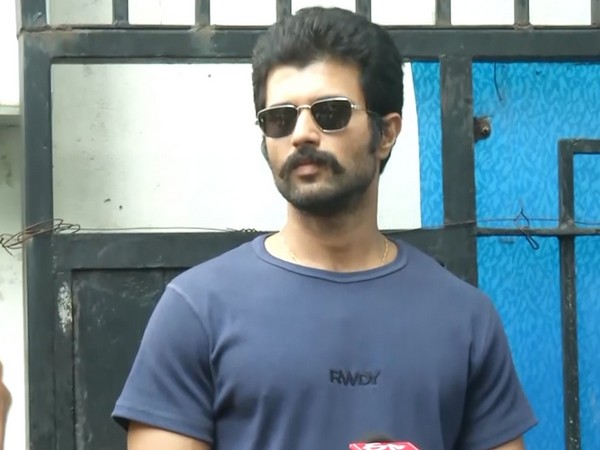
Analysis: Erdogan Wants To Rewrite Constitution To Suit Him
Quite unexpectedly Turkey’s President Tayyip Erdogan said on February 1 that the country needed a new ‘democratic’ constitution that would replace the 1982 constitution drawn by Turkish generals in the wake of the military coup of 1980. But what prompted the Turkish President to seek the change of a Constitution that has already been changed 19 times and most recently in 2017 when it changed from a parliamentary system to an executive presidential system?
This eliminated the post of Prime Minister and concentrated most of the powers in the hands of the President, despite strong objections from critics and opposition parties which criticized the move as a “one-man regime”.
On February 10, Erdogan said: “I believe that our new constitution will reflect the popular will and crown the objectives we have set for the 100th anniversary of our Republic. The constitutional work must be done in front of the people and through the participation of all their representatives in a transparent manner and the text that emerges must be presented to the approval of the people.”
With his popularity plummeting, Erdogan is facing the prospect of defeat for the first time since his rise to power in 2002. As recent polls show, the Peoples’ Alliance formed between Erdogan’s party AKP and the far-right Nationalist Movement Party (MHP) of Devlet Bahceli would not be able to secure a governing majority in the Turkish Parliament when the next elections take place.
It should be noted that Bahceli stated that he and his party strongly support Erdogan’s call for the drafting of a new constitution. A few weeks ago Bahceli suggested that changes should be made to Turkey’s constitution so as to ban the Kurdish-led Peoples’ Democratic Party (HDP), allegedly for having ties with the Kurdistan Workers’ Party (PKK), which is designated by Turkey and the US as a “terrorist organization.”
Amberin Zaman, a journalist of Al-Monitor, says that the purpose for which Erdogan is changing the constitution “is to rewrite the rules yet again in his own favor. It’s also to divert attention from swelling discontent over high prices, mounting poverty and unemployment, and endemic corruption. Either way, it rings hollow. Repression keeps growing. Tens of thousands of people have been locked up on specious terror charges. Torture under detention is back with a vengeance. In 2020, Freedom House ranked Turkey as “not free” for the fifth year running.”
As the opposition parties have been trying unsuccessfully to defang Erdogan’s executive presidency, it would be very difficult to see how they could not seize the opportunity of the drafting of a new constitution to bring back the system of parliamentary government. Furthermore, the opposition has recently been strongly pushing for holding early elections and a return to parliamentary democracy after the presidential system battered the economy.
The Republican People’s Party (CHP), the country’s largest opposition party, said Erdogan’s call for a new constitution is a sign that he has run out of political options.”The ruling system has become bankrupt two and a half years after the adoption of the presidential system. The nation and state have become bankrupt with it,” said CHP Vice-Chair Muharrem Erkek. “Whether the elections are held early or as scheduled, we will propose a return to the strengthened parliamentary system, and therefore, a new constitution” that overrules the 2017 changes,” he added.
Former Prime Minister Ahmet Davutoglu, leader of the opposition Future Party, said that his party would stand with the government if Erdogan decides to get rid of Bahceli and his Nationalist Movement party and return to the parliamentary system.
Idris Sahin, deputy chairman of the opposition Democracy and Progress Party (former Economy Minister Ali Babacan’s party) describes Erdogan’s call for a new constitution as “absolutely not a sincere idea” and adds: “This is only an attempt to change the agenda so that the economy, the pandemic, farmers’ concerns, traders’ worries and rights violations aren’t discussed.”
The London-based International Observatory of Human Rights in a statement about the proposed change says that a new constitution, in collaboration with Erdogan’snationalist allies, presents concerns for human rights with the possibility that Erdogan may use constitutional reform to further cement his power and crackdown on his opponents.
Washington Institute Think-Tank’s Turkey Director SonerCagaptay said that the proposal signaled Erdogan’s recognition that he is losing public support and adds that “Erdogan’s popularity has been waning since he unleashed a sweeping crackdown after surviving a failed coup in 2016. Accompanying economic problems have eroded support among working-class voters who form part of Erdogan’s political base.”
Berk Esen, assistant professor of international relations at Istanbul’s Sabanci University, gives his own explanation as to why Erdogan has proposed the drafting of a new constitution. He says: “Caught between a sputtering economy, an increasingly cohesive opposition, and hardening American and European leaders, Erdogan is looking for a way out. Cash injections from Qatar or currency swap deals with China in exchange for Turkish silence over the plight of the Uyghurs won’t be enough to sustain a country of 85 million. “We are witnessing a slow death by a thousand cuts for the Erdogan regime.” (ANI)



